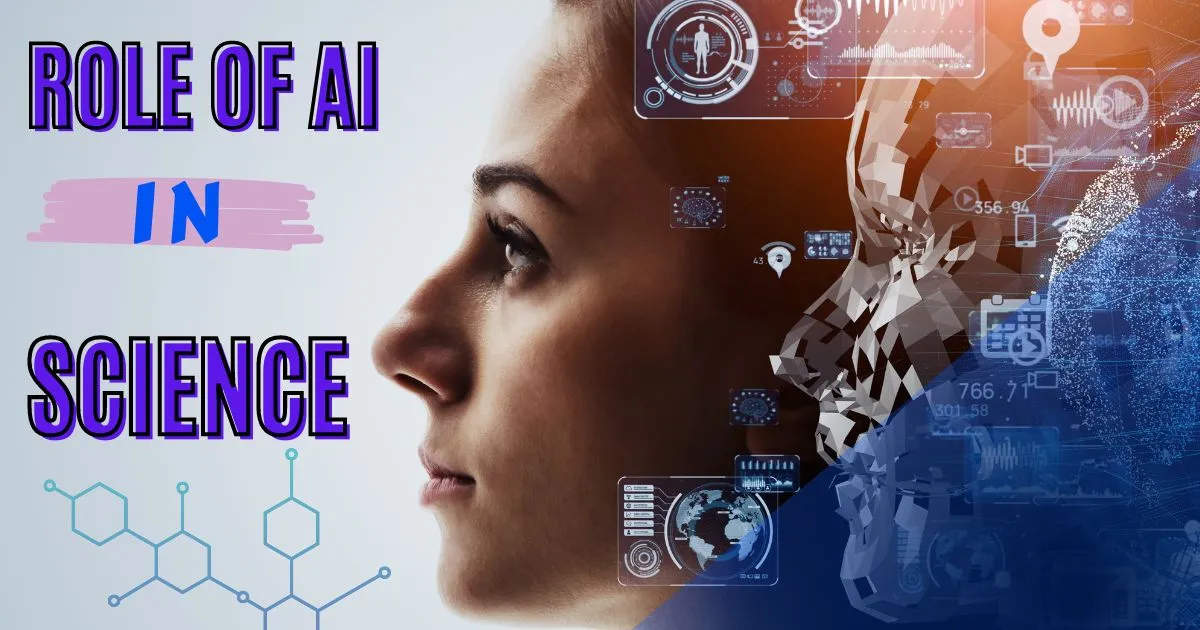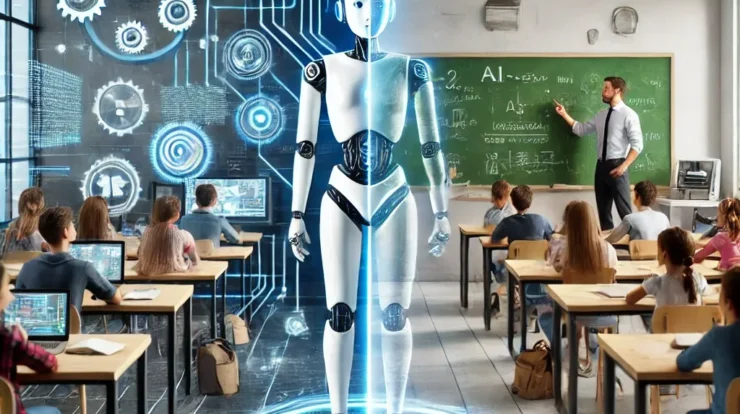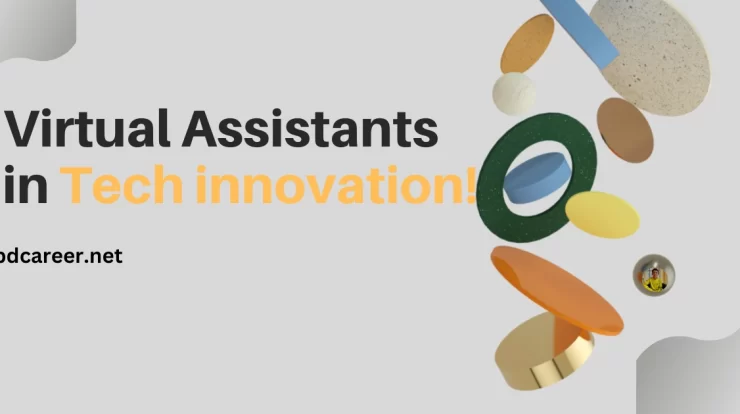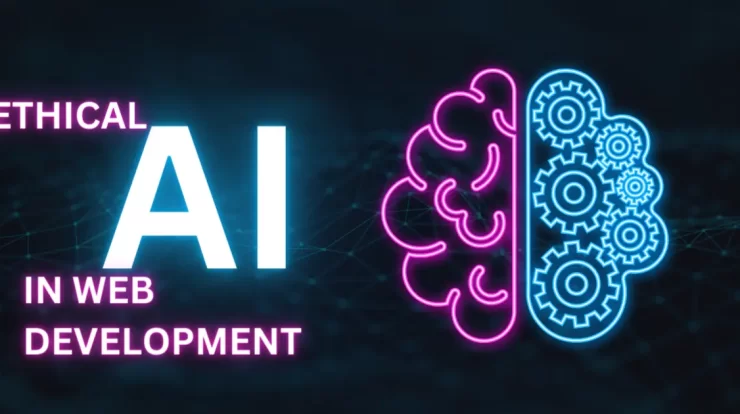
A newbie to the field of scientific discovery is Artificial Intelligence (AI), not a person. AI, a subfield of computer science, has taken center stage by developing robots capable of doing activities that are customarily associated with human intellect. This ensures a range of skills including learning, problem-solving, reasoning, and decision-making. This also includes learning, thinking, decision-making, and problem-solving. Artificial intelligence is causing rapid change in several scientific disciplines. These comprise physics, engineering, astronomy, biology, and chemistry. Thus, the role of AI is to advance science.
Contents
Assistant in the Lab
So, what’s the big deal about artificial intelligence in scientific discovery? It’s like having a teammate who helps you assist in everything. This assistant doesn’t need coffee breaks or any rest and can work round the clock restlessly, analyzing data from experiments, observations, simulations, and literature. It can spot patterns, correlations, anomalies, and insights in complex and noisy data, tasks that would give even the most seasoned scientist a headache.
But wait, there’s more! AI doesn’t just analyze data. It also develops hypotheses, predictions, explanations, and solutions for scientific questions and challenges. It can test these hypotheses using simulations or experiments. And the icing on the cake? AI can communicate and visualize scientific discoveries in a way humans can comprehend and interpret.
Challenges and Limitations
Science discovery driven by AI is still in its infancy and has a number of obstacles to overcome. A big challenge is availability and quality of the data. AI systems need their data to be sufficient, representative, diversified, and trustworthy. All data sources are not, however, reliable or easily available.
Another challenge is interpretability and explainability. We need to understand the logic, reasoning process, assumptions, uncertainties, limitations, and implications of the results generated by AI systems. However, not all AI systems clearly or transparently explain their outputs or decisions.
The ethical issues and societal effects of using AI in research must also be considered. Investigating cases related to justice, fairness, accountability, openness, privacy, safety, security, long-term sustainability, diversity, acceptance, justice, human worth, rights, and ideals—as well as happiness and flourishing—is essential. How can the benefits and drawbacks of using AI in scientific activities be balanced?
A New Era in Science
Consider a world where human constraints don’t constrain scientific discovery but are spurred forward by AI. This isn’t some distant dream; it’s happening right now. AI is changing scientific research and data processing through its learning and adaptability.
Artificial intelligence is a game changer now, not simply a tool. It is creating before unthinkable work opportunities. Demand for data scientists, AI experts, and machine learning engineers has grown with the AI revolution. AI compels us to face important ethical concerns, though, not only to seize stunning opportunities. In what ways may we guarantee transparent and equitable AI algorithms? In this day of AI-powered surveillance, how can we safeguard privacy? When we move into AI-powered discovery, these issues need answers. As a new era approaches, let us welcome the transition and eagerly anticipate the boundless scientific opportunities that artificial intelligence will provide.

Real-World Applications
You might wonder, “Has AI done anything noteworthy in scientific discovery?” Absolutely! Take DeepMind’s Alpha Fold 2 system, for example. It can predict the 3D structure of proteins from their amino acid sequences with an accuracy that’s never been seen before. This could completely change the game in drug discovery and our understanding of diseases.
And let’s not forget IBM’s Watson Health. It can analyze medical images and records to provide diagnosis and treatment recommendations. This could potentially save lives by catching diseases early. Open Ai’s GPT-3 language model can generate natural language texts on various topics based on a given prompt, helping spread scientific knowledge far and wide. NVIDIA’s Isaac Sim can simulate physical systems at different scales using artificial neural networks, offering valuable insights into complex phenomena.
A Game-Changer in Scientific Research
It is not just a keyword; artificial intelligence (AI) is transforming science. Imagine if AI can easily find trends and make predictions about people from massive volumes of data. Like a super-powered investigator, we worked hard to uncover hidden truths.
Think about astronomy. AI algorithms analyze astronomical data to reveal previously unseen celestial bodies. I feel like I’ve been given a new lens to see the universe, which is far more extensive and complex than I thought. AI has been trained to diagnose complex biological data and predict the consequences of medical diseases. It can prescribe remedies and inform clinicians’ decisions. AI quietly aids scientific research, expanding our grasp of the earth and beyond. It opens up new research possibilities and changes how we do research.
Emerging Careers in AI-Enhanced Scientific Discovery
In a future world, suppose that scientific inquiry transcends our comfortable techniques. AI is sculpting this reality for us. Our attitude to science is changing as AI is included into scientific study more and more, and it also creates new professional prospects.
Professionals in great demand include data scientists, AI experts, and researchers skilled with AI tools. Beyond being experts in their field of study, they must be proficient in machine learning and artificial intelligence methods. These people are trailblazers who close the gap between conventional scientific study and state-of-the-art artificial intelligence. Their work will lead us into a fascinating new phase of AI-driven scientific discovery.

Ethical Implications of AI in Scientific Decision-Making
AI presents a number of ethical issues even if it has many benefits for scientific research. Transparency and justification of the capacity of AI decisions are among the main worries.
Understanding the reasons behind particular predictions made by AI models gets more difficult as they get more complex. Particularly in sectors like healthcare where knowing the logic behind a diagnosis or course of treatment is essential, this lack of openness can be problematic.
A Winning Combination
Science and AI have several successful collaborations. 2020 saw the 50-year-old scientific challenge of protein 3D architecture prediction solved by DeepMind’s AlphaFold AI software. In several areas, including bioengineering and drug discovery, this ground-breaking breakthrough may accelerate research. Plenty more as well
An other amazing example is the discovery of a novel antibiotic molecule using artificial intelligence. Training on a dataset of known antibiotic chemical structures, the AI model found a compound with before undiscovered antibiotic characteristics.
In Summary
An interesting development with great promise for the future of science is the rise of AI-powered scientific discovery. As we proceed to include AI into scientific research, we also need to consider the moral ramifications and make every effort to use this potent instrument sensibly. People and artificial intelligence need to collaborate peacefully in order to progress scientific discoveries. This fascinating journey is only beginning!





